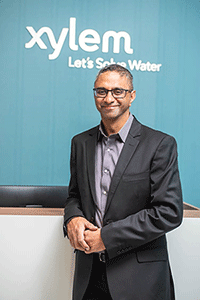

Wenn du mich siehst, dann weine – ‘If you see me, then weep’. This is a startling message to stumble upon, carved into one of numerous ‘hunger stones’ in various European rivers. The hunger stones were medieval traditions indicating when a river’s levels had dropped so low that famine would follow.
Many of these rocks have started to emerge again as Europe faces what may be its worst drought in half a millennium. Alongside the stones, receding waters have revealed sunken ships, lost Roman villages, and in Spain, an ancient group of standing stones. At the same time, Pakistan is experiencing floods so overwhelming that it cannot find enough space to divert all the extra rainfall.
Closer to home, 2019’s Cyclone Idai set records for its size and ferocity, not to mention the damage it wrought on Mozambique. And the more recent floods in KwaZulu-Natal reminded South Africans that we are also not spared from an increasingly volatile weather system – ominous signs and certainly reason to be worried.
At Xylem, we look for the positive. We don’t deny our world’s problems, but we also don’t allow complacency to take over. Indeed, the hunger stones’ warnings are not quite the same today – we can feed the world, and we can manage water better.
But the key word is ‘can’. If we’re honest, there is still a lack of urgency around addressing water issues; not just the massive problems mentioned above but even securing day-to-day access to this resource. Time is a luxury we cannot afford, and there are clear signs that investors and markets agree.
Perhaps the most telling example is the performance of the S&P; Global Water Index. This index tracks water-sector companies (water utilities, infrastructure, equipment and materials) from around the world. Since 2001, it has outperformed the S&P; Global Broad Market Index by more than three percentage points annually; this year, that figure is already at 5%.
Droughts and climate stress are not the only catalysts for water’s rising value. If anything, we grossly undervalue this resource. Only 3% of the world’s water is fresh – and more than two-thirds of that sits in glaciers. Supply struggles to keep up with demand as the world modernises. It’s simple economics: high demand and low supply mean water is becoming more precious.
Water has always been precious. Alongside the air we breathe, it’s fundamental for life on our planet. The difference is that we could previously rely on water’s ubiquity to be readily available. This is changing, so what can we do about it?
Here is the good news: we are not without options. We have a lot of ways to address water problems, stemming from the fact that we’ve not been very good at it in the past. Many industries don’t nit-pick water usage at the levels they treat other resources. Old infrastructure wastes a lot of water. Water capture and recycling are still more the exceptions than the rule.
Though society’s treatment of water has not been commendable, we still have many chances to improve the situation. Interventions include:
• Proactive maintenance: It is far more cost-effective to capture and remediate water infrastructure problems early than make repairs or replacements later. Technologies such as acoustic leak detection and predictive maintenance systems can radically reduce the cost and increase the longevity of water pipelines.
• Repairing infrastructure: Most African countries struggle with large levels of non-revenue water wastage, meaning water piped to homes and businesses but lost due to leaks and poor billing practices. Fixing this would save water and bring revenue to ailing municipalities.
• Decentralised water reuse: Industries such as mining and manufacturing can capture and recycle runoff water for site activities, and use technologies such as UV and ozone to create safe potable water for their sites and surrounding communities. Residential areas can use greywater recycling to irrigate gardens.
• Improved irrigation: Agriculture takes the majority of available water in Africa, much of it groundwater, yet most is lost through evaporation. Investing in newer techniques such as drip irrigation will lead to huge savings.
• Water education: People, in general, do not treat water responsibly. We hose down driveways, keep taps running, and under-load dishwashers or laundry machines. A drive to show people how they can use water more smartly will help significantly in one of the most water-stressed countries on the planet.
• Better water technologies: The water industry has developed incredible new technologies to help monitor, manage and improve water systems. From capturing water data for planning to retrofitting water and wastewater facilities with power- and cost-saving systems, there has never been a better time to invest in water technologies.
Water is a precious resource – the world just rarely treats it as such. But this is changing. Between the stresses of a growing modern world and the growing impact of extreme weather events, we must take water seriously. Fortunately, there is much we can do. Let’s not lose faith and weep, as the hunger stones suggest. Let’s tackle water’s most acute problems and start creating a world where it is our most valuable resource.

© Technews Publishing (Pty) Ltd | All Rights Reserved